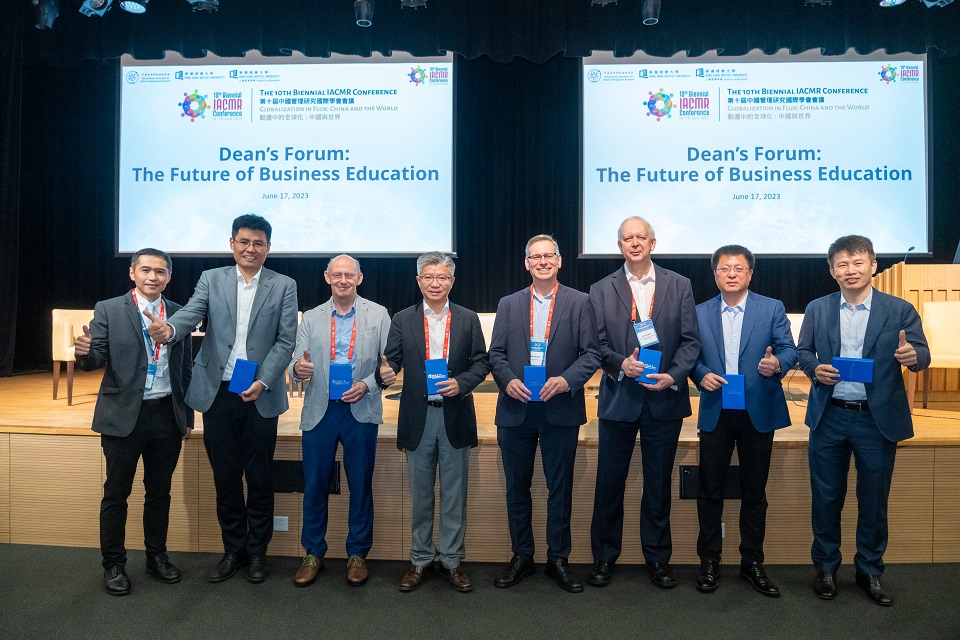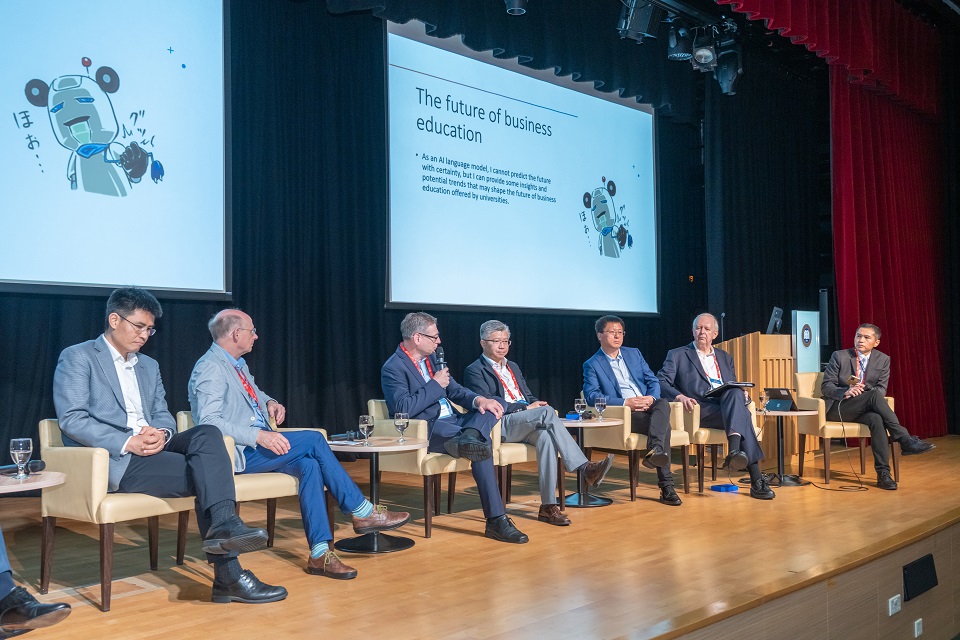Discover HKBU
The future of business education in the age of AI
18 Jun 2023
Artificial intelligence (AI) is developing at an astonishingly fast pace, and it is transforming the way we search for information, create and learn. While this powerful tool brings new opportunities for business students and educators, there is a need to proceed with caution in using the technology, according to Professor Ed Snape, Dean of the School of Business at HKBU.
Leveraging AI to improve learning
The arrival of ChatGPT, a chatbot utilising a large language model, has recently taken the world by storm, and higher education is one of the domains being impacted by this interactive AI tool. Professor Snape believes that the impact of AI technology is twofold: the potential for misuse by students and the potential benefits for personalised learning experiences.
“When ChatGPT first emerged, our School’s focus was on ensuring that students are not misusing the technology by simply submitting AI-generated work as their own,” he says. To maintain academic integrity, the School used AI-detection tools and revised assessment strategies to ensure that students had a good understanding of the written work they had submitted.
Besides rethinking the approaches of assessing students, faculty members are also looking into ways to use generative AI in teaching and learning. With AI technology being universally accessible, business professionals may be expected to deploy the related tools soon after graduation. To empower the next generation of business leaders, the School is working to incorporate AI into the classroom. “In future, we will educate our students to make intelligent use of the technology in supporting their learning. We also plan to use adaptive learning technologies, for example using AI to personalise students’ learning experience based on individual strengths, weaknesses, and learning styles,” says Professor Snape.
He adds that AI technology can assist teachers in adjusting the difficulty or delivery style of the course content based on the students’ performance and mastery of the material, and it can also provide individualised resources and personalised feedback. This, in turn, can help students learn more effectively and efficiently.
Incorporating experiential learning and innovative pedagogies
Another new frontier for education is brought about by the online and hybrid learning experiences spurred on by the pandemic. Professor Snape says: “Online learning will be a feature of the post-pandemic world due to its flexibility and accessibility. Whilst it has its advantages, I do not think it will completely replace face-to-face learning for the majority of students.”
He believes that learning and teaching approaches will have to become more diverse, blending online with classroom-based education while incorporating a range of experiential and technology-based pedagogies. Over the past few years, the School has increasingly focused on providing students with hands-on, experiential learning opportunities. “We have made more use of experiential and project-based learning, which are designed to nurture students’ skills, entrepreneurial mindset and employability, by allowing them to apply business knowledge in a real-world context. Such approaches are adopted as early as in the first-year Business Administration programme,” he says.
Driven by the needs of students and by the recent developments in educational technology, faculty members at the School have adopted various innovative teaching methods like gamification to engage students and promote active learning. For example, Finance and Economics courses are using simulation investment games and behavioural economics experiments through mobile apps to make students’ learning experience more engaging and memorable. In Management and Marketing courses, a flipped classroom model is implemented so that students can come to class prepared and ready to engage in deeper discussions and active learning.
In addition, the School is using Massive Open Online Courses in collaboration with LinkedIn Learning and Coursera to promote self e-learning, encouraging students to take responsibility for their learning and develop a lifelong learning mindset, essential if they are to keep pace with an increasingly skills-based market.
Charting a new course for business education
To foster academic exchange and explore new ways to prepare students for the professional world, the School of Business has co-organised the 10th Biennial International Association for Chinese Management Research (IACMR) Conference on campus this month. Themed “Globalisation in Flux: China and the World”, this signature academic conference gathered renowned scholars and experts from around the world.
At the highlighted event of the conference, “Dean’s Forum: The Future of Business Education”, Professor Snape discussed issues such as advancing research, improving the quality of business education, and the transformation and development of business schools. He was joined by deans from the business schools of top universities including Tsinghua University, The University of Hong Kong, and Fudan University. Faculty members of the School of Business at HKBU also served as facilitators and speakers throughout the conference, presenting their latest research and insights.
With the power of technology changing the landscape of business education, educators and students are at the forefront of innovation, where opportunities for discoveries await those who learn and make the best use of technology.



